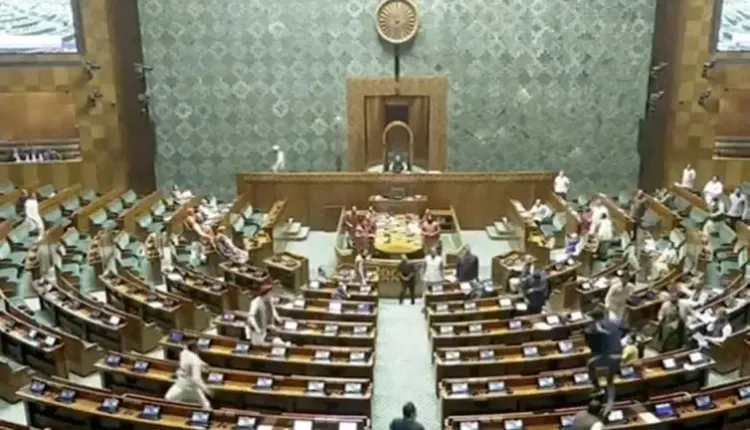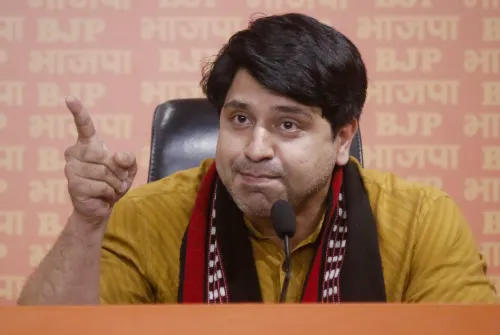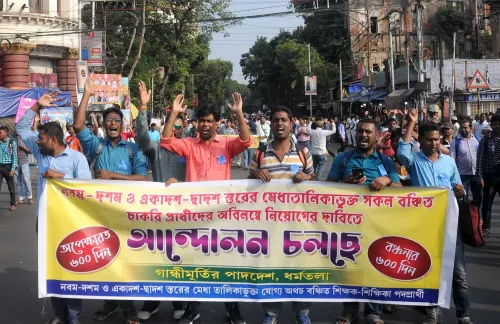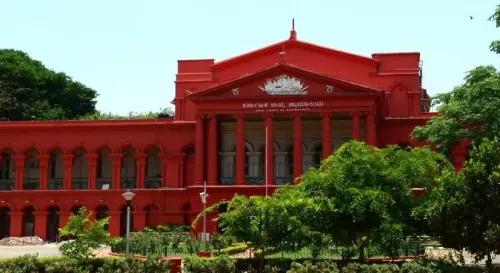Union Cabinet Greenlights Revisions to Waqf Bill, Paves Way for Parliamentary Discussion

Synopsis
Key Takeaways
- Cabinet approves amendments to Waqf Bill.
- Bill to be discussed in budget session.
- 14 changes accepted from Joint Parliamentary Committee.
- Proposals include appointing women and non-Muslims to Waqf Boards.
- Bill aims to improve Waqf property management.
New Delhi, Feb 27 (NationPress) The Union Cabinet has approved amendments to the Waqf (Amendment) Bill, including updates suggested by the Joint Parliamentary Committee (JPC), sources confirmed on Thursday.
The Bill is set for discussion and approval in the second phase of the budget session, scheduled from March 10 to April 4. The initial segment of the budget session took place from January 31 to February 13.
The Cabinet endorsed 14 modifications proposed by the JPC during a meeting on February 19, as reported by sources.
The Waqf (Amendment) Bill entails 44 proposed changes to the regulations governing both central and state Waqf boards.
Among these proposals—such as appointing non-Muslim and at least two female members to a Waqf Board—intense opposition protests have arisen. The Bill was referred to the JPC in August 2024 after being presented in the Lok Sabha by the Minister of Minority Affairs, Kiren Rijiju.
The parliamentary committee approved the report with a majority vote, though all 10 opposition MPs in the panel expressed their dissent through notes.
Sources indicate that the government has implemented most of the suggestions made by the JPC, chaired by Jagdambika Pal, and the Cabinet approved these changes last week alongside the Indian Port Bill.
Significant amendments to the Bill include renaming it to the 'Unified Waqf Management, Empowerment, Efficiency and Development (UMEED) Bill', ensuring representation from the Muslim OBC community on State Waqf Boards, protecting women's inheritance rights, and mandating the uploading of all Waqf property details to a central portal within six months.
On August 8, 2024, two Bills—the Waqf (Amendment) Bill, 2024 and the Mussalman Wakf (Repeal) Bill, 2024—were presented in the Lok Sabha to enhance the operations of the Waqf Board and ensure effective management of Waqf properties. The aim of the Waqf (Amendment) Bill, 2024 is to revise the Waqf Act, 1995, addressing the challenges associated with the regulation and management of Waqf properties.
This Amendment Bill aspires to refine the administration and management of waqf properties across India, aiming to rectify the deficiencies of the prior act and bolster the functionality of Waqf boards through updates such as renaming the Act, revising waqf definitions, streamlining the registration process, and augmenting technological integration for managing waqf records. The primary goal of the Mussalman Wakf (Repeal) Bill, 2024 is to abolish the Mussalman Wakf Act, 1923, a colonial-era law deemed outdated and insufficient for the management of waqf properties in today’s India, according to a government statement. The repeal aims to foster uniformity, transparency, and accountability in the administration and management of waqf properties while eliminating inconsistencies and ambiguities stemming from the persistence of this obsolete law.









